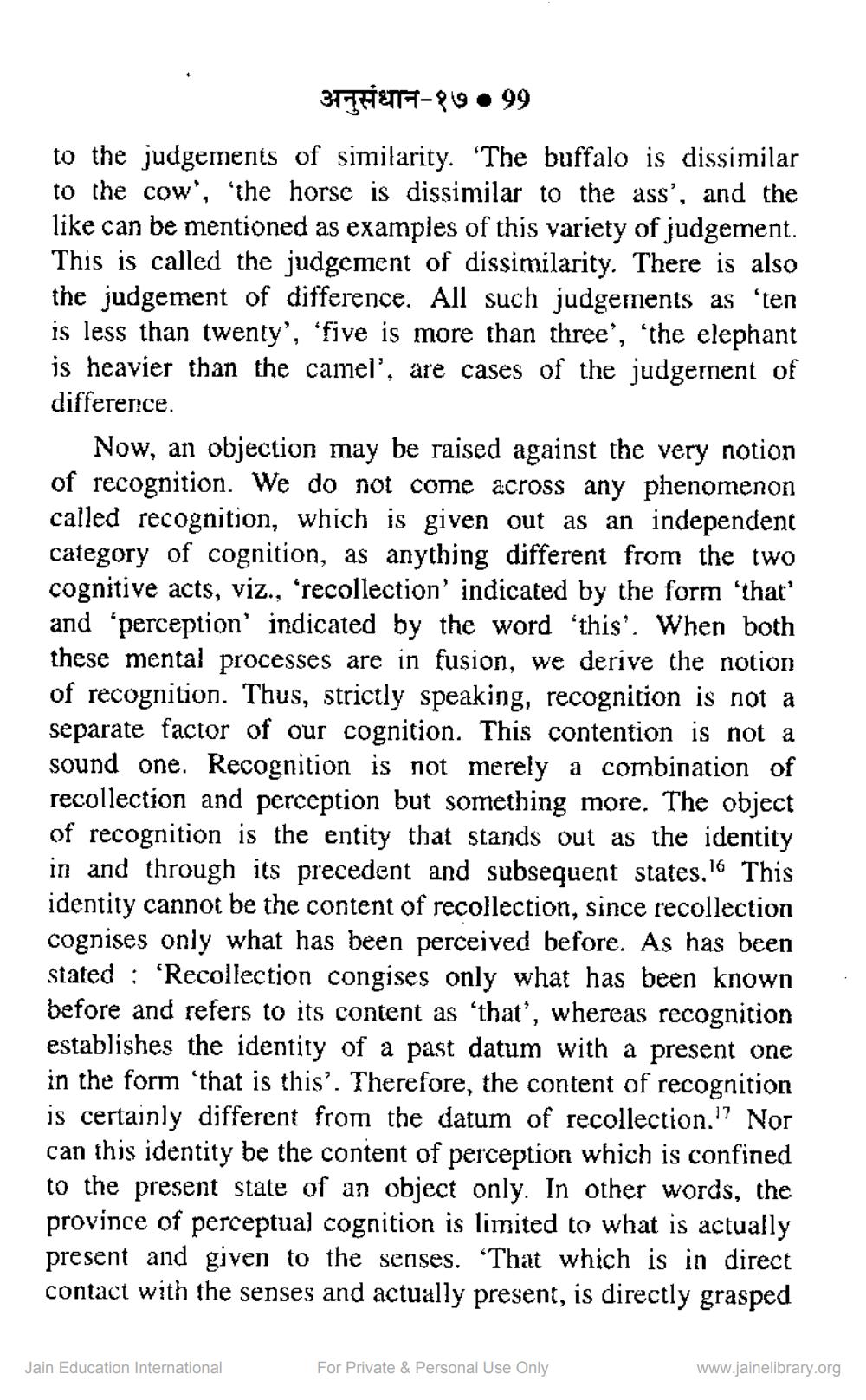Book Title: Jaina Concept of Memory Author(s): Mohanlal Mehta Publisher: ZZ_Anusandhan View full book textPage 6
________________ 31 GETT-91999 to the judgements of similarity. "The buffalo is dissimilar to the cow', 'the horse is dissimilar to the ass', and the like can be mentioned as examples of this variety of judgement. This is called the judgement of dissimilarity. There is also the judgement of difference. All such judgements as 'ten is less than twenty', 'five is more than three', 'the elephant is heavier than the camel', are cases of the judgement of difference. Now, an objection may be raised against the very notion of recognition. We do not come across any phenomenon called recognition, which is given out as an independent category of cognition, as anything different from the two cognitive acts, viz., ‘recollection' indicated by the form 'that' and 'perception' indicated by the word 'this'. When both these mental processes are in fusion, we derive the notion of recognition. Thus, strictly speaking, recognition is not a separate factor of our cognition. This contention is not a sound one. Recognition is not merely a combination of recollection and perception but something more. The object of recognition is the entity that stands out as the identity in and through its precedent and subsequent states, 16 This identity cannot be the content of recollection, since recollection cognises only what has been perceived before. As has been stated : 'Recollection congises only what has been known before and refers to its content as 'that', whereas recognition establishes the identity of a past datum with a present one in the form that is this'. Therefore, the content of recognition is certainly different from the datum of recollection."? Nor can this identity be the content of perception which is confined to the present state of an object only. In other words, the province of perceptual cognition is limited to what is actually present and given to the senses. “That which is in direct contact with the senses and actually present, is directly grasped Jain Education International For Private & Personal Use Only www.jainelibrary.orgPage Navigation
1 ... 4 5 6 7
